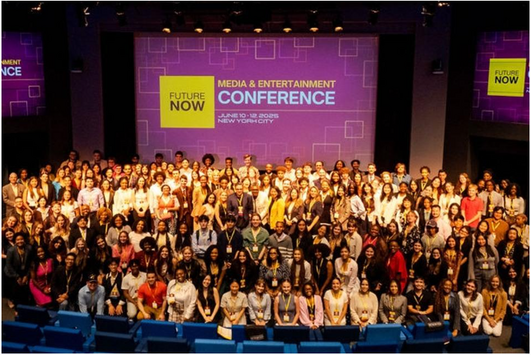

Most corporate mentoring programs start with high hopes—but quietly fizzle out within months. Mentors get too busy, mentees don’t know what to ask, and soon, nobody’s showing up. But what if the problem isn’t lack of commitment—it’s that we’re doing mentoring all wrong?
The real solution lies in empowering mentees to take the lead. Instead of placing all the pressure on mentors to drive the relationship, successful programs like the one at FUTURE NOW Media Foundation flip the script. They equip mentees to take ownership, create structure, and initiate growth. The result? A mentoring experience that leads to real jobs, internships, and long-term success.
Traditional programs expect mentors to set the agenda. But FUTURE NOW, a nonprofit grooming future leaders in media, found something radical: mentees should lead. Every mentee in their nine-month program is responsible for scheduling meetings, setting the agenda, and preparing specific questions or goals—before every session.
This structure not only makes the mentee more accountable, it gives mentors a reason to stay engaged. As FUTURE NOW CEO Peggy Kim puts it, "You have to be ready to have a mentor." Empowered mentees don’t just receive guidance—they earn it, which builds mutual respect and leads to deeper investment from both sides.
Another major reason FUTURE NOW succeeds? Rigor. Only 20 mentees are accepted into the program annually, and applicants go through a competitive selection process with essays, resumes, and screening questions. This ensures that only motivated, high-potential individuals are selected—setting the tone for a results-driven experience.
Once the program begins, accountability is built in. Committee members regularly check in with both mentors and mentees to ensure the relationship stays active and productive. This structure eliminates the common “ghosting” problems seen in many workplace mentoring programs and creates a feedback loop that ensures continuous improvement.
A mentoring program that works well doesn’t just benefit the mentees—it energizes mentors. In FUTURE NOW’s case, senior leaders from top companies like Netflix, Disney, and TikTok volunteer not because it’s a checkbox, but because the experience is personally rewarding and professionally enriching.
Mentors build cross-functional relationships with peers, gain exposure to rising talent, and contribute to a culture of generosity and service. This mentor satisfaction is a key reason why FUTURE NOW’s model continues to thrive while many others stall. And it’s a reminder: if you want great mentors to show up, you have to give them a reason to stay.
Corporate mentoring doesn’t fail because people don’t care—it fails because it’s built on outdated assumptions. When you focus on empowering mentees to take ownership, introduce clear structure, and create mutual value, everything changes.
Whether you’re building a program from scratch or trying to rescue one that’s stalled, here’s the smarter approach:
Choose mentees based on readiness, not just availability
Make mentees the drivers of the relationship
Keep mentors engaged by delivering real value in return
Maintain ongoing oversight and feedback loops
Mentorship isn’t charity—it’s a strategic tool for leadership development. And when done right, it’s one of the most powerful culture-shaping investments any organization can make.
Comment